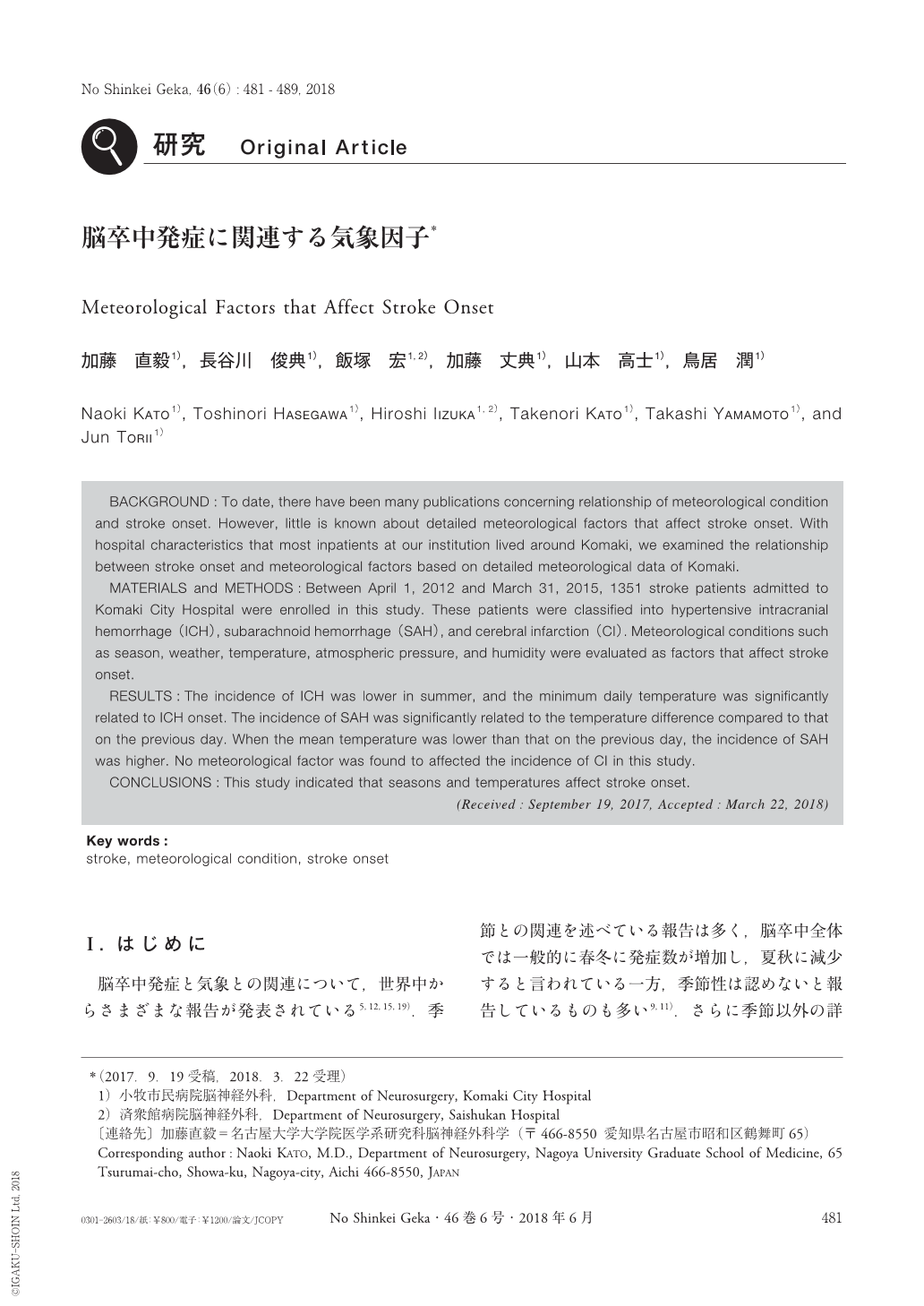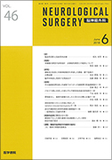Japanese
English
- 有料閲覧
- Abstract 文献概要
- 1ページ目 Look Inside
- 参考文献 Reference
Ⅰ.はじめに
脳卒中発症と気象との関連について,世界中からさまざまな報告が発表されている5,12,15,19).季節との関連を述べている報告は多く,脳卒中全体では一般的に春冬に発症数が増加し,夏秋に減少すると言われている一方,季節性は認めないと報告しているものも多い9,11).さらに季節以外の詳細な気象条件について検討している報告は少なく,臨床の現場では脳卒中の発症と気象条件には強い関連があるという印象を受けるものの,明らかなデータは示されていない.
本研究では,小牧市民病院における脳卒中入院症例が小牧市周辺地域で発症した患者であるという地域特性を利用し,小牧市の詳細な気象データと脳卒中発症との関連について検討した.
BACKGROUND:To date, there have been many publications concerning relationship of meteorological condition and stroke onset. However, little is known about detailed meteorological factors that affect stroke onset. With hospital characteristics that most inpatients at our institution lived around Komaki, we examined the relationship between stroke onset and meteorological factors based on detailed meteorological data of Komaki.
MATERIALS and METHODS:Between April 1, 2012 and March 31, 2015, 1351 stroke patients admitted to Komaki City Hospital were enrolled in this study. These patients were classified into hypertensive intracranial hemorrhage(ICH), subarachnoid hemorrhage(SAH), and cerebral infarction(CI). Meteorological conditions such as season, weather, temperature, atmospheric pressure, and humidity were evaluated as factors that affect stroke onset.
RESULTS:The incidence of ICH was lower in summer, and the minimum daily temperature was significantly related to ICH onset. The incidence of SAH was significantly related to the temperature difference compared to that on the previous day. When the mean temperature was lower than that on the previous day, the incidence of SAH was higher. No meteorological factor was found to affected the incidence of CI in this study.
CONCLUSIONS:This study indicated that seasons and temperatures affect stroke onset.

Copyright © 2018, Igaku-Shoin Ltd. All rights reserved.


